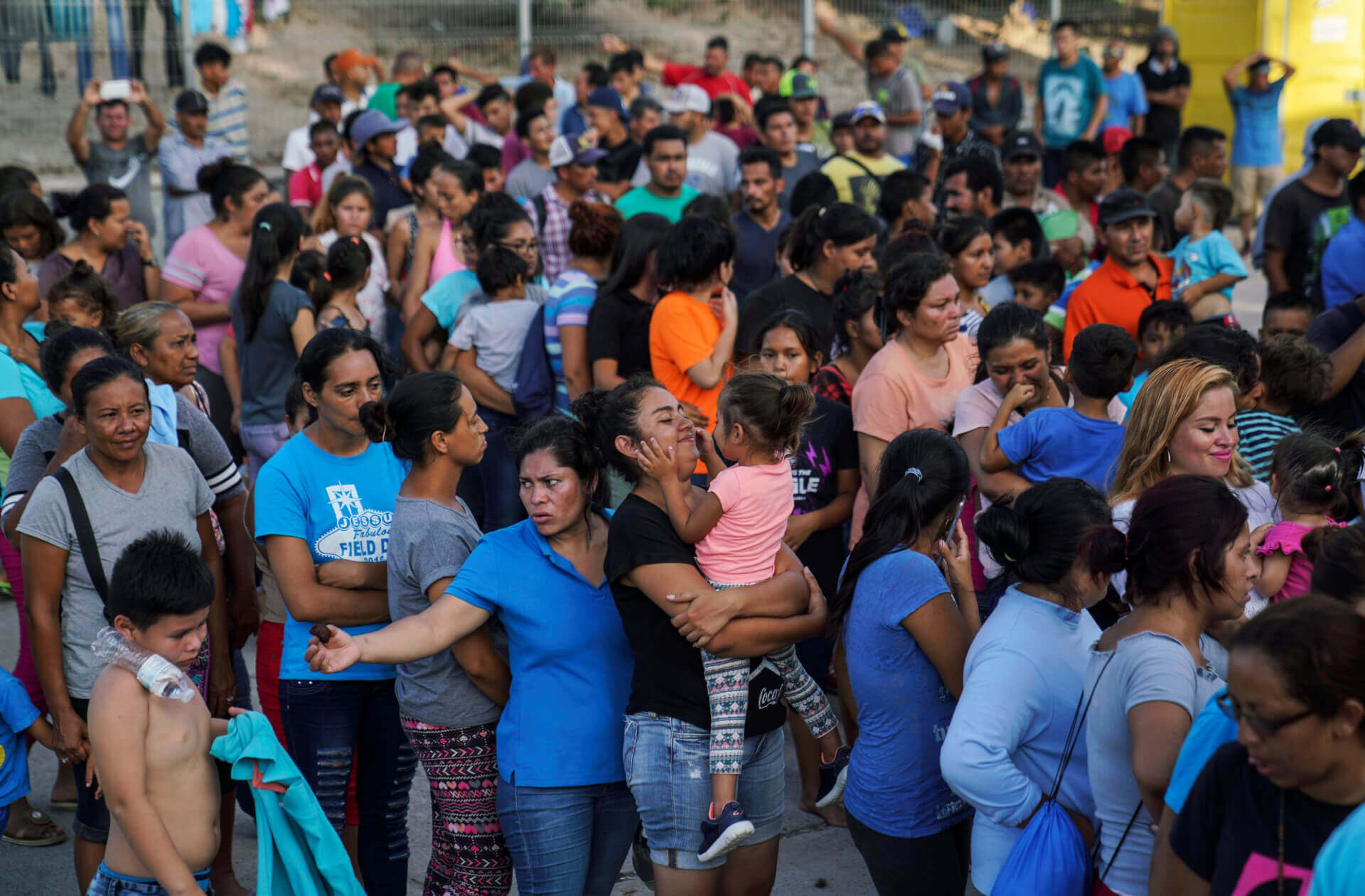Replicating similar deals with Guatemala and Honduras, Washington is preparing to implement the Asylum Cooperative Agreement signed with San Salvador last year that will divert a portion of asylum seekers from the US-Mexico border to El Salvador.
Acting Homeland Security Secretary Chad Wolf met with officials from Panama and El Salvador this week to hold discussions that he said represented a “critical step in the establishment of a truly regional approach to migration, and, more specifically, to the offer of protection to those migrants who are victims of persecution”.
As a result of the agreements, the US will send some asylum seekers who arrive at its borders to the three partnered countries under the Asylum Cooperative Agreements. Put simply, the deals say that migrants can seek shelter in the countries they pass through on their way to the US.
Although Salvadoran President Nayib Bukele was initially hesitant about the deal, given El Salvador’s small size and inability to handle an influx of migrants, he soon struck a deal with the Department of Homeland Security (DHS).
At this time, only the agreement with Guatemala is operational, though it has already led to the deportation of 1,000 Hondurans and Salvadorans. Rights groups and the migrants themselves fear that this only places vulnerable populations in further danger, given the high propensity for robberies, rape, human trafficking, torture, and murder in the three countries that the US has designated as “safe third countries. It is no coincidence that citizens from these countries are seeking asylum in the US to escape those same dangers. This fact is not lost on Washington, as evidenced by the fact the State Department has travel warnings in place for all three countries.
The asylum-seekers, too, are acutely aware of the dangers that await them in the Northern Triangle of Guatemala, Honduras, and El Salvador. Between November 2019 and March 2020, the US sent 1,000 asylum seekers to Guatemala. However, just 2% of them chose to apply for asylum in Guatemala, with the vast majority returning to their home country.
The Trump administration argues that these countries are capable of offering protection to these asylum-seekers, yet the US government itself seems to refute these claims. Therefore, it is clear that these deals are merely targeted at advancing the current government’s anti-immigrant agenda.
There are indications that these policies could be undone under the new Biden administration, as Vice President-elect Kamala Harris has previously called them “inhumane and potentially illegal”, adding that they could have “serious and detrimental implications for US national security” by eroding the legitimacy and credibility of the US in Central America as a regional leader. That being said, President-elect Joe Biden’s Central America policy plan does not mention cancelling these accords.
This is indicative of the more hands-off approach the US is seeking to take, wherein it seeks to share the burden of housing refugees and asylum-seekers with the same states they are escaping from.
For example, in October, it was revealed that the Guatemalan military deployed troops to its borders to prevent a caravan of Honduran migrants from advancing in their goal of reaching the US. In fact, Guatemalan President Alejandro Giammattei announced that security forces had sent back roughly 3,500 Honduran migrants in a bid to prevent the spread of the coronavirus.
Mexico, too, deployed its army, the national guard, and the National Migration Institute (INM), to seal its southern border in order to prevent Honduran migrants from entering the country via Guatemala.
It is thought that this cooperation on the part of Central American countries is due to the promise of American support—financial and otherwise. For instance, when an overwhelming amount of asylum seekers arrived at the US-Mexico border last year, Mexico avoided the crippling tariffs Trump was threatening by deploying its National Guard to stop several Central American immigrants headed north to the US. Mexico also acquiesced to Trump’s policy of making asylum seekers wait in Mexico while their cases were being processed in the US. Even during the ongoing pandemic, the US is using its health emergency to send Mexicans and Central Americans back to Mexico.
This has in part paved the way for Mexico to sign a free trade agreement with the US and Canada. Furthermore, When Trump was brokering a deal between oil-producing nations to reduce production, he offered to further reduce US production on behalf of Mexico. This would allow Mexico, which could not afford to significantly reduce production, to make fewer cuts than required by the deal right now, provided that it pays the US back in the future.
It is possible that Guatemala, Honduras, and El Salvador are hopeful of similar kickbacks through the Asylum Cooperative Agreements.
Trump Administration to Implement Agreement to Deport Asylum Seekers to El Salvador
The incumbent administration plans to send some of the asylum seekers that arrive at the US-Mexico border to Guatemala, Honduras, and El Salvador as part of the Asylum Cooperative Agreements.
December 18, 2020

IMAGE SOURCE: VERONICA G ARDENAS / APBetween November 2019 and March 2020, the US sent 1,000 asylum seekers to Guatemala. However, just 2% of them chose to apply for asylum in Guatemala, with the vast majority returning to their home country.
